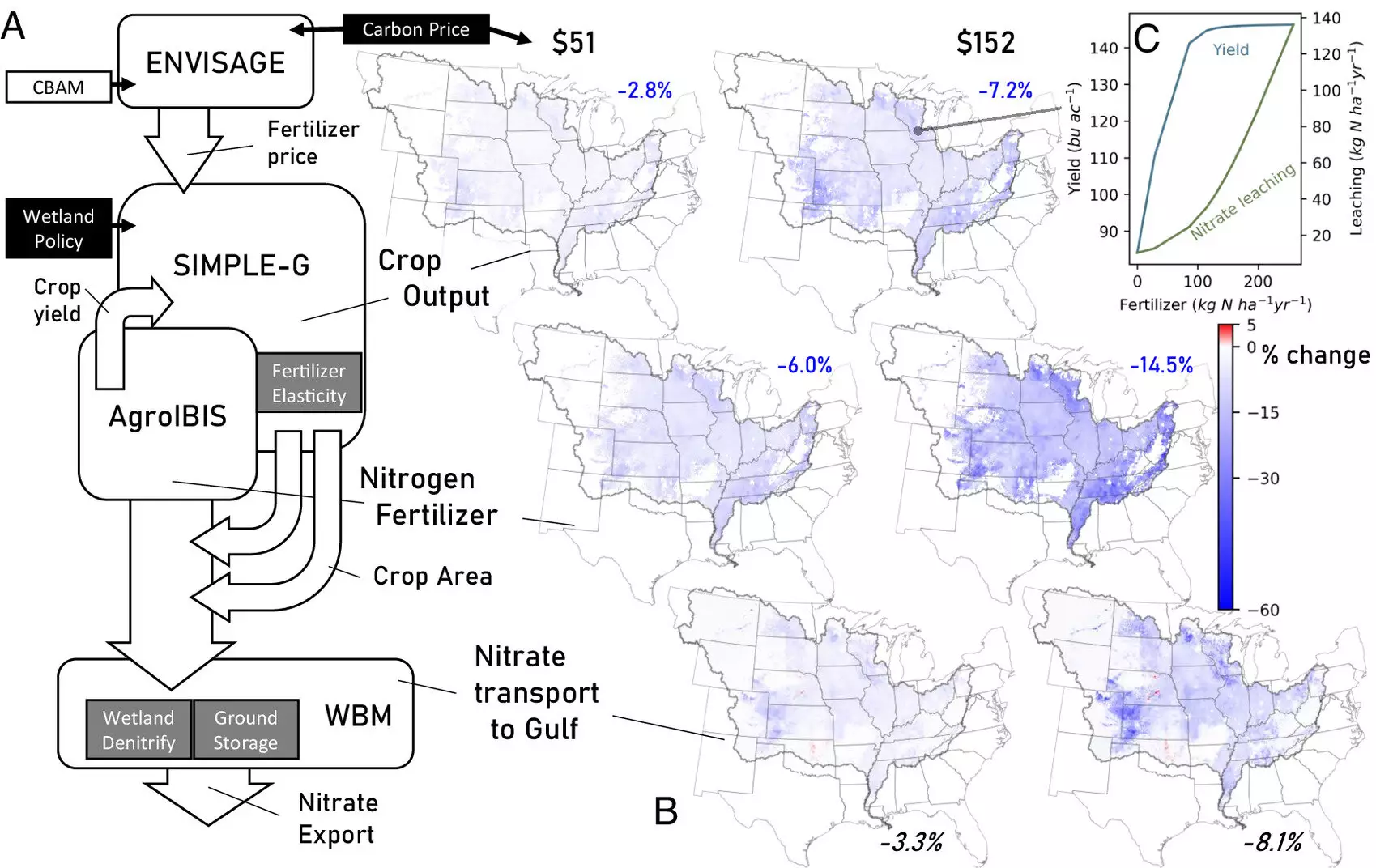Climate change is a pressing global issue that calls for urgent action. U.S. climate policies aim to address this challenge by implementing measures to reduce greenhouse gas emissions. A recent study conducted by the University of New Hampshire explores the consequences of applying a social cost to fossil fuel prices in the agricultural sector. By examining the impacts on agriculture and water quality, the study sheds light on the potential benefits of such policies.
The research team used four different models to analyze the relationship between fossil fuel prices, fertilizer costs, and CO2 emissions. Their findings indicate that adding a social cost to fossil fuels could lead to a decline in CO2 emissions of up to 50%. However, this reduction would come at a cost – the price of fertilizer would rise. Nevertheless, the increased cost of fertilizer would have a significant positive impact on water quality by reducing fertilizer runoff that contributes to the Gulf of Mexico’s dead zone.
Excessive fertilizer use poses a threat to water quality, particularly in the Mississippi River Basin and the Gulf of Mexico, which is an important fishery in the U.S. By applying a social cost to fossil fuel prices, the researchers projected a 3% to 4% reduction in the Gulf of Mexico’s dead zone during an average year. This reduction would be due to a decrease in fertilizer runoff, resulting in a decline in harmful algal blooms and preserving marine life.
To understand the implications for agriculture, the study considered the effects of increased fertilizer costs on crop production. The models showed that implementing the climate policy could lead to a decline in corn and soybean production by about 7%. As a result, crop prices would increase by 6%. Additionally, there would be a significant reduction in nitrate leaching, a process that contributes to water contamination. The decline in fertilizer application and loss to the environment ranged from 9% to 16%, depending on the social cost imposed on fossil fuels.
The researchers emphasize that implementing a carbon price that reflects its social cost allows the U.S. to fulfill its commitment to the Paris Accord. By reducing carbon emissions by 29% to 50%, the U.S. can contribute significantly to global efforts to combat climate change. These reductions align with the goals outlined in the Paris Accord, representing 4.6% to 8% of global carbon emissions.
The study also explored the potential benefits of wetland restoration in mitigating nitrogen loading and reducing hypoxia in the Gulf of Mexico. The researchers found that targeted wetland restoration could double the effect of a low to moderate social cost of carbon. This suggests that integrating restoration measures alongside climate mitigation policies can enhance the positive impact on water quality and further reduce contamination in the Gulf of Mexico.
The findings of this study provide crucial insights for policy makers in considering climate mitigation strategies. By incorporating a social cost to fossil fuel prices, not only can the U.S. meet its climate commitments, but it can also significantly improve water quality. These benefits extend beyond reducing CO2 emissions and have a tangible impact on agricultural practices, crop prices, and the health of marine ecosystems. Policy makers must carefully consider these co-benefits when designing and implementing climate policies.
The research conducted by the University of New Hampshire highlights the potential benefits of incorporating a social cost to fossil fuel prices in the agricultural sector. By reducing CO2 emissions and fertilizer runoff, U.S. climate policies can contribute to both climate change mitigation and improved water quality. The study’s findings emphasize the importance of considering multiple aspects of climate policy and exploring alternative approaches to address environmental challenges. By taking a comprehensive approach, policy makers can design effective strategies that promote sustainable agriculture and protect our ecosystems.


Leave a Reply